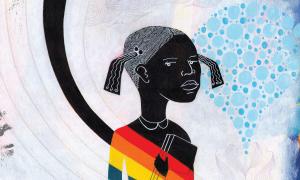article
2,414 Results
text
Literature
William Wells Brown
William Wells Brown was born into slavery and later escaped to become one of the foremost supporters of abolition.
January 8, 2019
author
article
The Only One

When you’re the only person of color in your class, school can become a struggle between two worlds.
article
A Lawyer's Story From the Field
A Southern Poverty Law Center lawyer relates to a student who has been suspended repeatedly from a Florida school district where the Center is challenging the discriminatory treatment of African-American children.
article
What We're Reading
Our book reviews can help you keep your practice fresh and informed.
article
Jim Crow Today
It can be daunting but also amusing to set the context for Harper Lee’s classic To Kill A Mockingbird. If my students thought the 1992 L.A. Riots were “back in the day,” imagine how long ago the 1930’s feel to them. Not only that, but when I refer to the southern United States, several of them think I really mean “a place near L.A.”To conquer this, we spent a period locating Alabama on the map, sipping sweet southern tea and checking out Dorothea Lange’s Depression-era photos. I even play a compilation of tunes that were popular then, including A Tisket, A Tasket by Ella Fitzgerald. Overall, we have fun as we look back.
student task
Do Something
Oral Interviews
Students conduct interviews and record personal experiences focused on a specific theme. They synthesize and present the information as a drawing, poster, paragraph or bulletin board.
July 13, 2014
article
Teaching About Mass Incarceration: The Ongoing Narrative of Racial Oppression

We need to talk about mass incarceration in schools, and the conversation can’t stop after one discussion.
article
Toolkit for "Two Pairs of Shoes"
Building Your Knowledge Learn more about Native Americans. First, encourage students to take a short quiz to see what they already know (or don’t know) about Native American Influences in U.S. History and Culture. Oral
